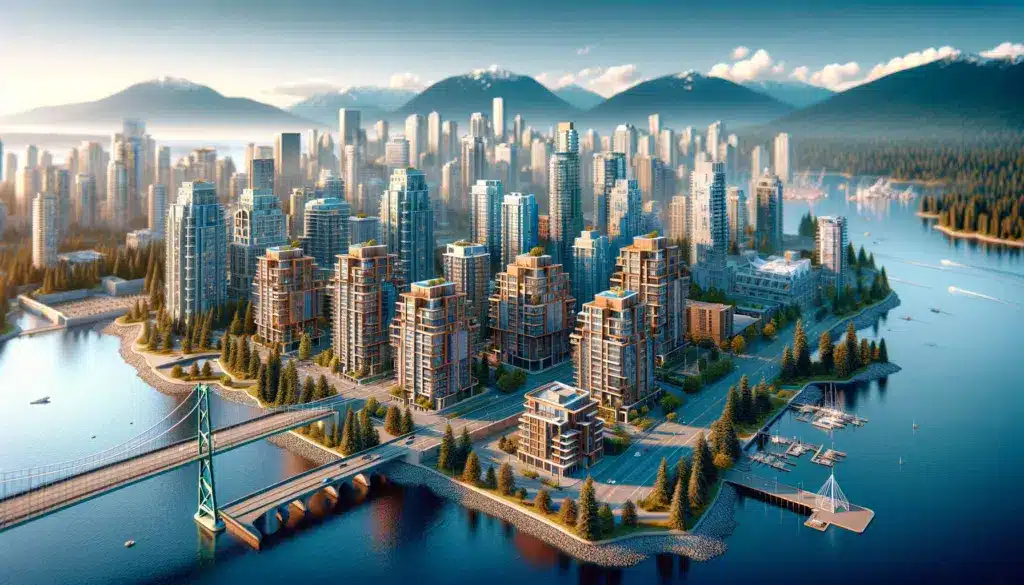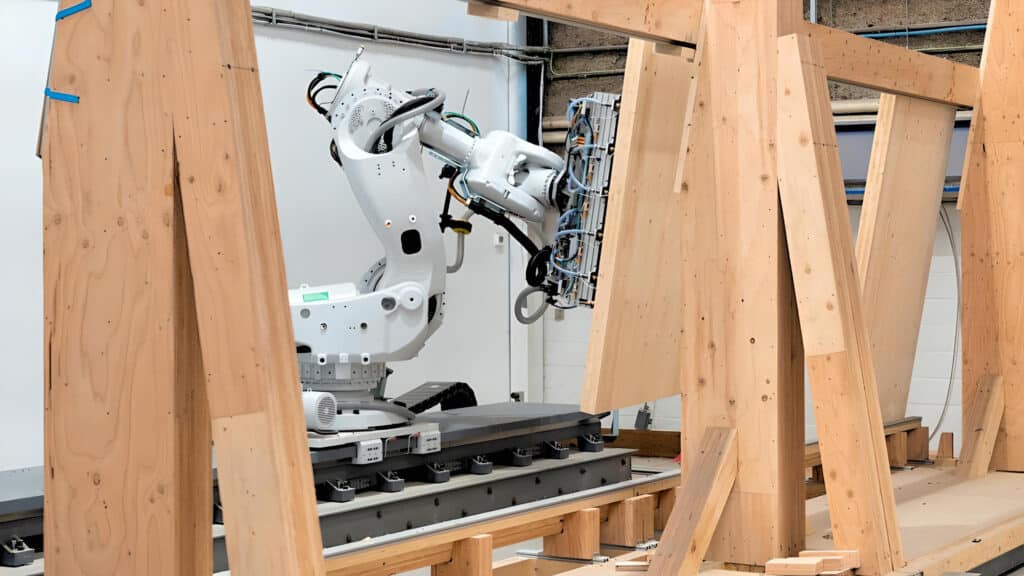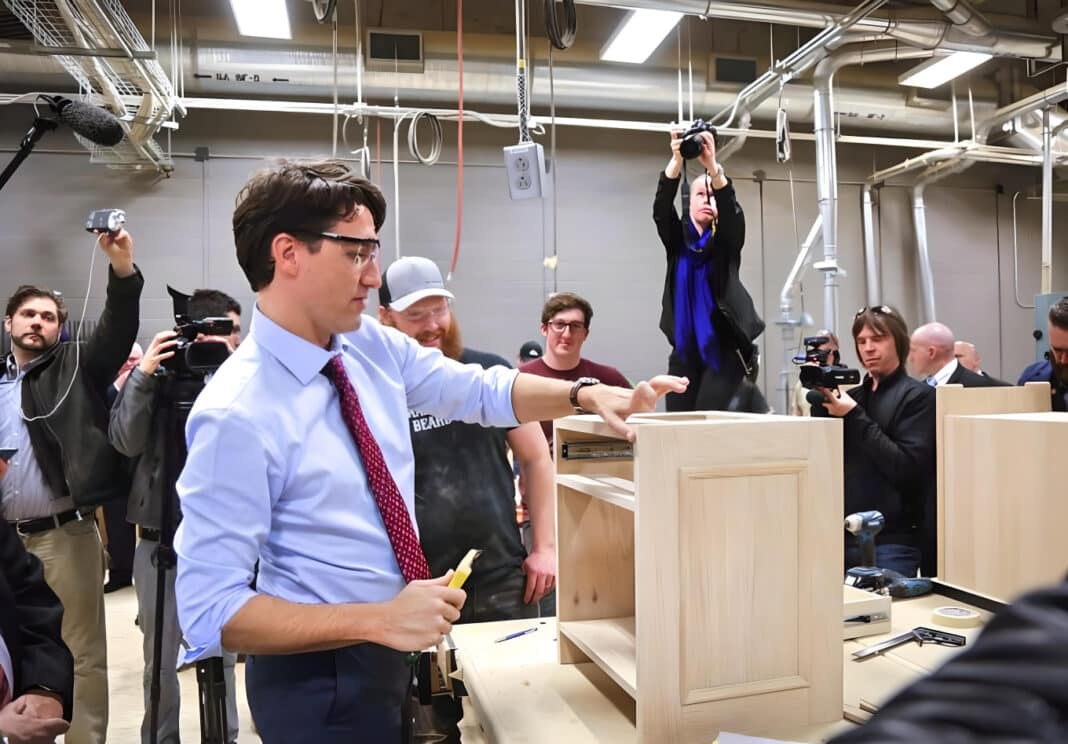Canada is investing $600 million in prefab manufacturing, mass timber construction, panelization, 3D printing, and pre-approved housing designs, which amounts to one of the strongest commitments by a national government to supercharge social and affordable housing.
The announcement, made by Prime Minister Justin Trudeau on Friday, comes as Wood Central reported in January that the government was looking to “Quick Builds” to produce low-rise and mid-rise housing solutions on an industrial scale – a throwback to a War Time policy, where Canada manufactured 36 hour “Victory Houses” for returning veterans.
The new pledge is part of a suite of policies introduced by the Trudeau-led Liberal Government – which has committed $23 billion to address housing, currently trailing the Conservative Pierre Poilievre, ahead of an October poll defined by a housing shortage and cost-of-living crisis gripping Canada.
According to Prime Minister Trudeau, the squeeze for housing – especially in the built-up areas of Vancouver, Montreal, and Toronto, is “one of the biggest pressures on people right now…(with) the cost to build homes too high, and the time to finish projects too long.”
As Wood Central reported in January, more than 15% of residents in those cities spend more than 50% of their income on rental properties.
“We’re changing the way we build homes in Canada,” Prime Minister Trudeau said, adding that “as a country, we need to build homes smarter, faster and at prices Canadians can afford.”

The investment, set to be unveiled as part of Canada’s Budget, to be released on April 16, 2024, will include the launch of a Housing Design Catalog – a Second World War policy that saw Canada turn around 26,000 new properties between 1941 and 1947.
Deputy Prime Minister and Minister for Finance Chystia Freeland said it will “make it possible to build more homes faster…meaning that we can accelerate timelines, allowing Canadians to move into homes even faster.”
Under the policy, 50 low-rise, row housing and fourplex ‘blueprints’ will be provided to house builders, provinces, municipalities and territories to simplify and accelerate housing approvals and construction timelines.
“These investments will help us take the new technologies and building techniques that exist today and deploy them on a scale that Canada has never seen before,” said Sean Fraser, Minister for Housing, Infrastructure and Communities, and comes as Canadian manufacturers now use “intelligent robots” to prefabricate custom cut panels of mass timber walls, floors and ceilings in factories before assembling it on site.

It comes after Wood Central reported last month that British Columbia and Vancouver, more specifically, are looking to accelerate mass timber construction to meet the demand for affordable housing – with Prime Minister Trudeau leading the charge to include the changes in the National Building Code.
Billed as the British Columbia Building and Fire Codes (BC Codes 2024), it is part of a sweep of programs aimed at reducing embodied carbon and decarbonising construction. Last year, Canada became a signatory of the coalition of countries that will incentivise wooden construction to meet net-zero targets.






